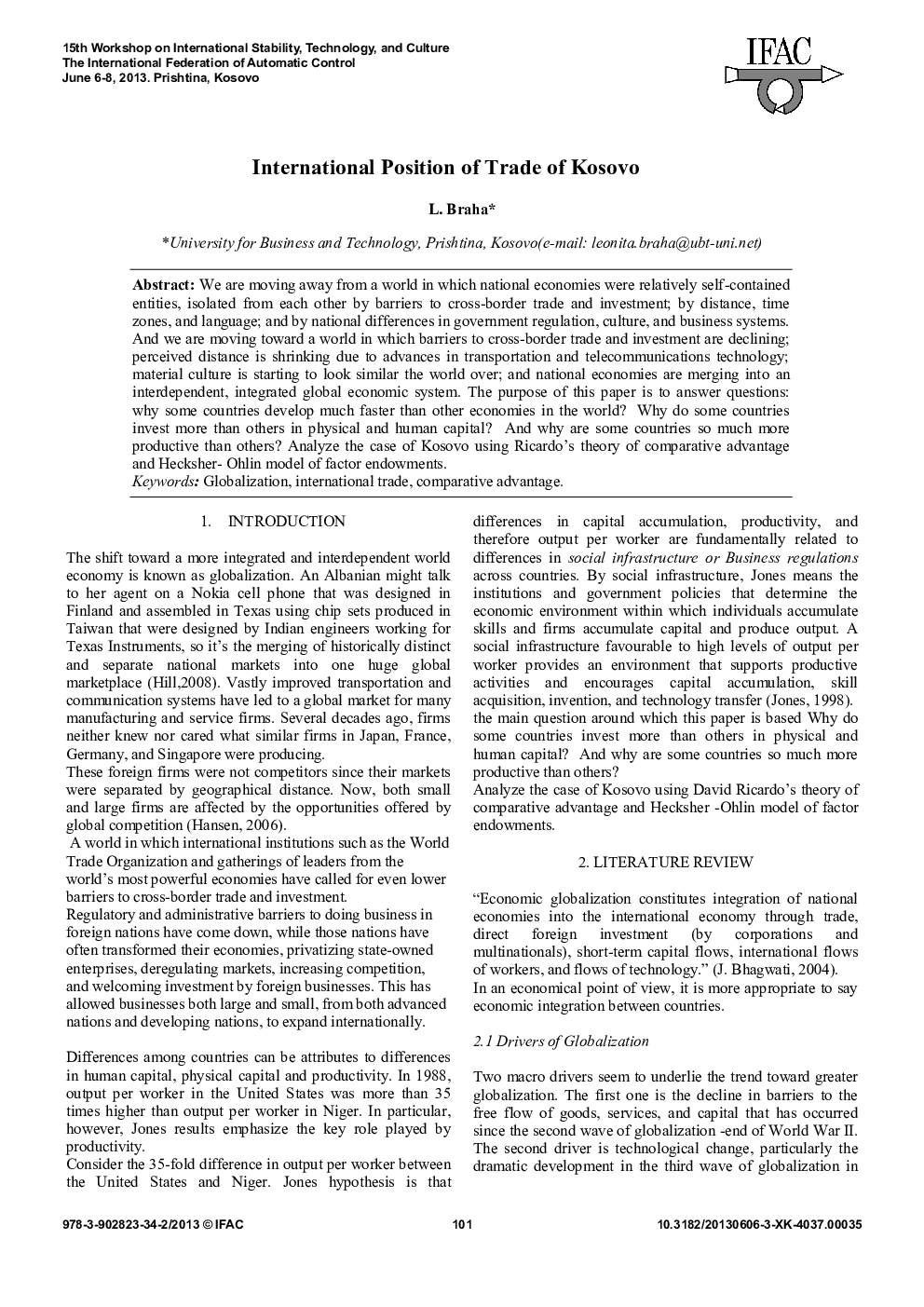| Article ID | Journal | Published Year | Pages | File Type |
|---|---|---|---|---|
| 713298 | IFAC Proceedings Volumes | 2013 | 5 Pages |
We are moving away from a world in which national economies were relatively self-contained entities, isolated from each other by barriers to cross-border trade and investment; by distance, time zones, and language; and by national differences in government regulation, culture, and business systems. And we are moving toward a world in which barriers to cross-border trade and investment are declining; perceived distance is shrinking due to advances in transportation and telecommunications technology; material culture is starting to look similar the world over; and national economies are merging into an interdependent, integrated global economic system. The purpose of this paper is to answer questions: why some countries develop much faster than other economies in the world? Why do some countries invest more than others in physical and human capital? And why are some countries so much more productive than others? Analyze the case of Kosovo using Ricardo's theory of comparative advantage and Hecksher- Ohlin model of factor endowments.
